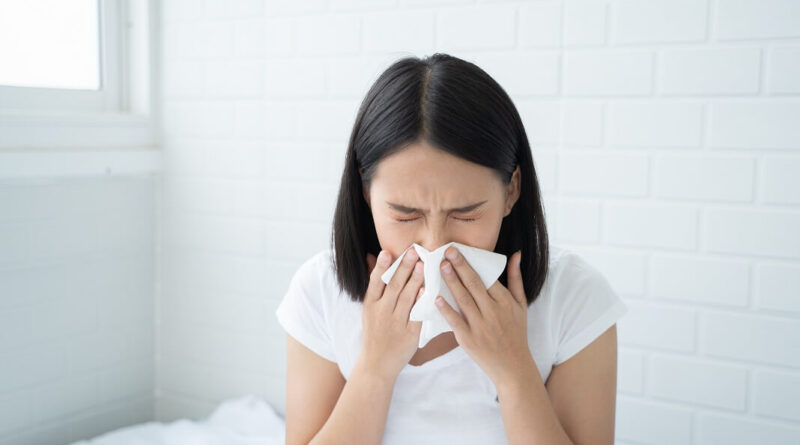Treat Allergies Naturally with Herbs
Allergy attacks occur either during a particular season or during inhalation of pollen and other particulate matter during Spring and Summer. It can also occur at the onset of winter when the climate undergoes a transition from hot to cold, making your eyes and nose go runny and uncomfortable.
According to the Centers for Disease Control and Prevention, there is no known preventive procedure for allergies but the reactions can be prevented. Seasonal allergies are natural and can be cured with herbs for allergies.
Table of Contents
Use These 8 Effective Herbs for Treating Allergies
If you are a victim of seasonal allergic reactions, then the Spring season is perhaps the least romantic of all seasons for you, what with flower pollen, dry autumn leaves, ragweed, and grassy particles floating in the air we breathe. Seasonal allergy is but a byproduct of the first world lifestyle that is prone to excessive cleanliness and overuse of antibiotic agents. However, seasonal allergies hit the poorer strata of society as well in the form of environmental pollution and dietary deficiency.
So what can you do for the prevention and cure of allergies? Well, for starters, you can stay at home when the day is particularly windy to avoid the inhalation of pollen. Try not to go out during office hours when the streets are jammed with traffic and the air is heavy with pollution. However, the best thing that you can do is embrace the goodness and medicinal benefits of herbs for allergies. Check out the names and properties of the different herbs for allergies right here.
1. Astragalus and Reishi
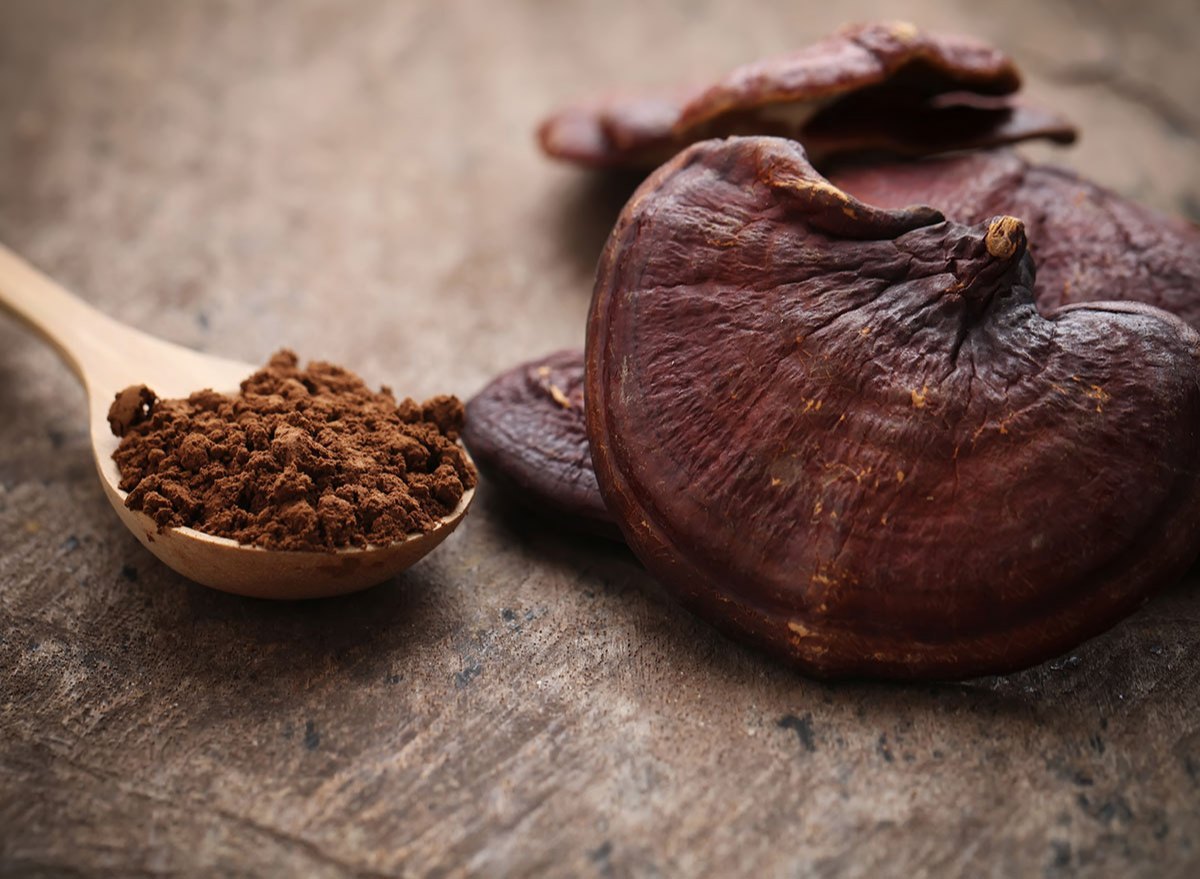
The regular consumption of Astragalus(1) and Reishi helps in the modulation and regulation of the response of the immune system. These medicinal mushrooms contain polysaccharide compounds that work in the improvement of cellular functioning and signaling.
You can either blend the reishi mushroom with spices such as cardamom, nutmeg, anise, etc and add the mixture to soups and broths or brew a cup of tea. You can also have maitake and shiitake mushrooms for the cure of allergies.
If you are not a fan of mushrooms, then you can try the astragalus root that can cure mild to severe seasonal allergies.
2. Horehound
Horehound is a bitter herb of the mint family that is one of the most popular herbs for allergies in the USA and is extensively used in the preparation of cough syrups.
The extract of Horehound herb can cure persistent wet and dry coughs and provide relief from chest and nasal congestion with its expectorant properties.
You can prepare a tincture dose of Horehound herbal extract 1-2 ml concentration and then take it twice or thrice a day for the cure of chronic allergies.
3. Nettle
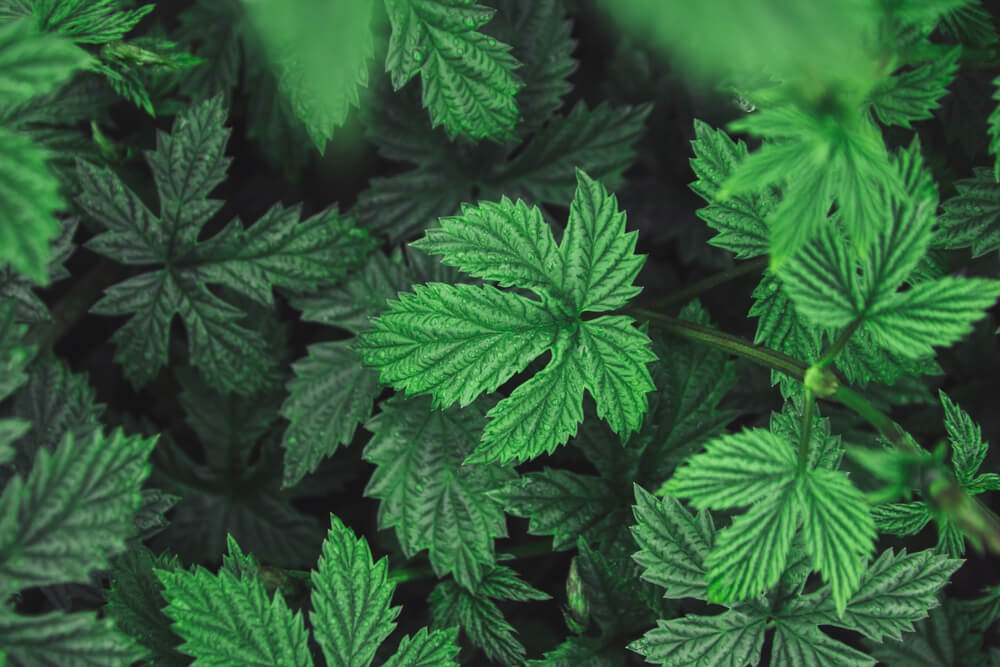
Stinging nettle herb is rich in a variety of compounds that can aid in the alleviation of allergic inflammation and reaction to histamine. The use of nettle herbal tincture can provide immediate relief from the different symptoms of allergies.
You can blend the extract of nettle with the tinctures of horehound and goldenrod and consume it on a regular basis not only for the cure of seasonal allergies but also for due prevention.
4. Goldenrod
There is a myth surrounding the goldenrod herb that it triggers ragweed allergic reactions. This herb may grow in the same place as ragweed but unlike the former, it possesses potent anti-inflammatory, anti-histamine, and antioxidant compounds.
Herbalists and experts recommend the consumption of the extract of goldenrod as it is one of the best herbs for allergies and respiratory issues. It helps to thin the mucus and expel it from the nasal passage, sinuses, and chest thereby providing relief from congestion and suffocation.
5. Butterbur
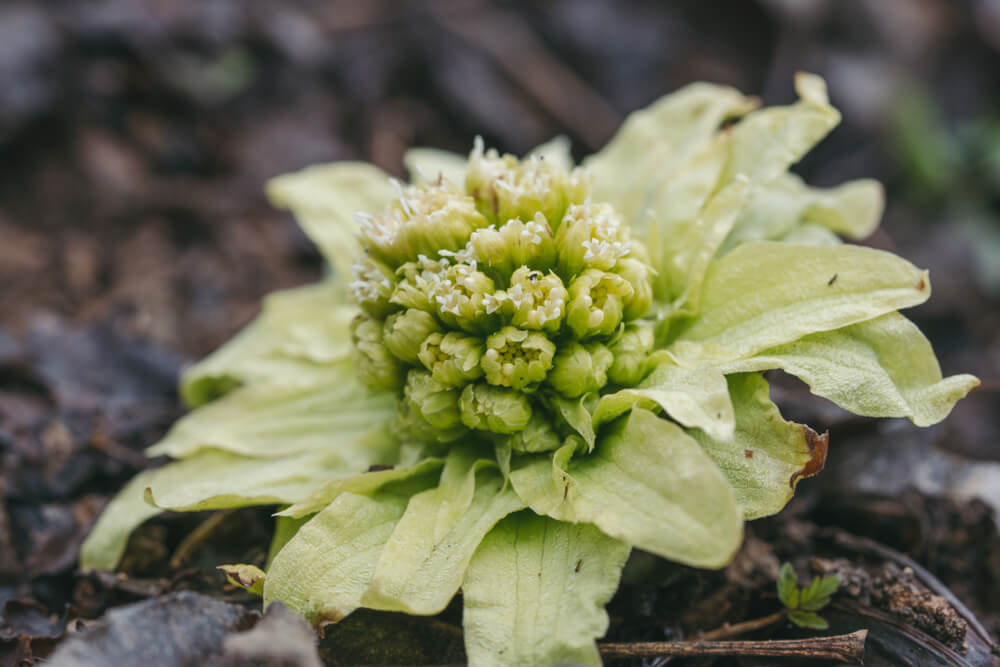
Of all the herbs for allergies, butterbur(2) is the most medically effective herb according to extensive clinical research.
The herbal extract of butterbur is way more effective than over-the-counter anti-allergic drugs and meds.
However, do not attempt to prepare the herbal extract of butterbur at home as that can bring you in contact with liver-toxic alkaloids like pyrrolizidine. You can opt for butterbur medicines such as Petadolex that is free of PA and safe for consumption.
6. Wasabi
Wasabi is the best cure for congested sinuses and seasonal allergic reaction.
Its cure might be asymptotic and temporary, but the administration of fresh wasabi paste can clear out the air passage and help you breathe freely again. Do not use vinegar wasabi or tinctured wasabi as such is not effective for the cure of allergies.
7. Mullein
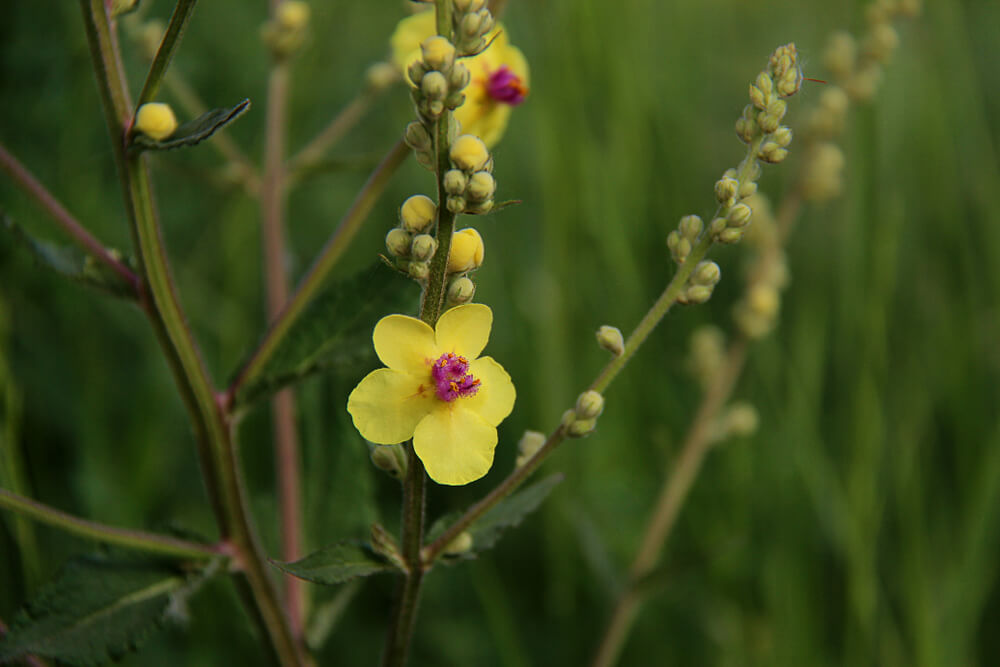
Mullein(3) is one of the best herbs for allergies as it is rich in antispasmodic, healing, and soothing properties that work in unison for the cure of respiratory issues.
It helps to cure any kind of allergic inflammation, irritation, and infection of the lungs and is easily available in the form of capsules, tinctures, and tea blends. If you are attempting to prepare the tea of Mullein at home then you need to strain out the hairy filaments with a coffee filter before proceeding with the preparation.
8. Gingko Biloba
- The Gingko Biloba herb is vested with potent cardiovascular benefits and is excellent for the natural treatment of seasonal allergies and asthma.
- Gingko biloba is packed with anti-allergic compounds and possesses seven varieties of anti-histamines which make it incredibly effective for the natural cure of allergies.
- Gingko Biloba is rich in ginkgolides which work to provide relief from the symptoms of allergy attacks, asthma, and other lung disorders by the natural cure of inflammation.
Make Herbal Tea at Home for Allergies
Sipping on a cup of hot herbal tea that trickles down the painful and irritated throat leaving behind a trail of comfort and warmth behind it, is pure bliss for the victims of seasonal or chronic allergies. Herbal tea consists of several different components. You can either blend all the components into one or combine a few depending upon the symptoms of your allergy. Check out the components or herbs for allergies that go into the preparation of herbal teas.
1. Rooibos
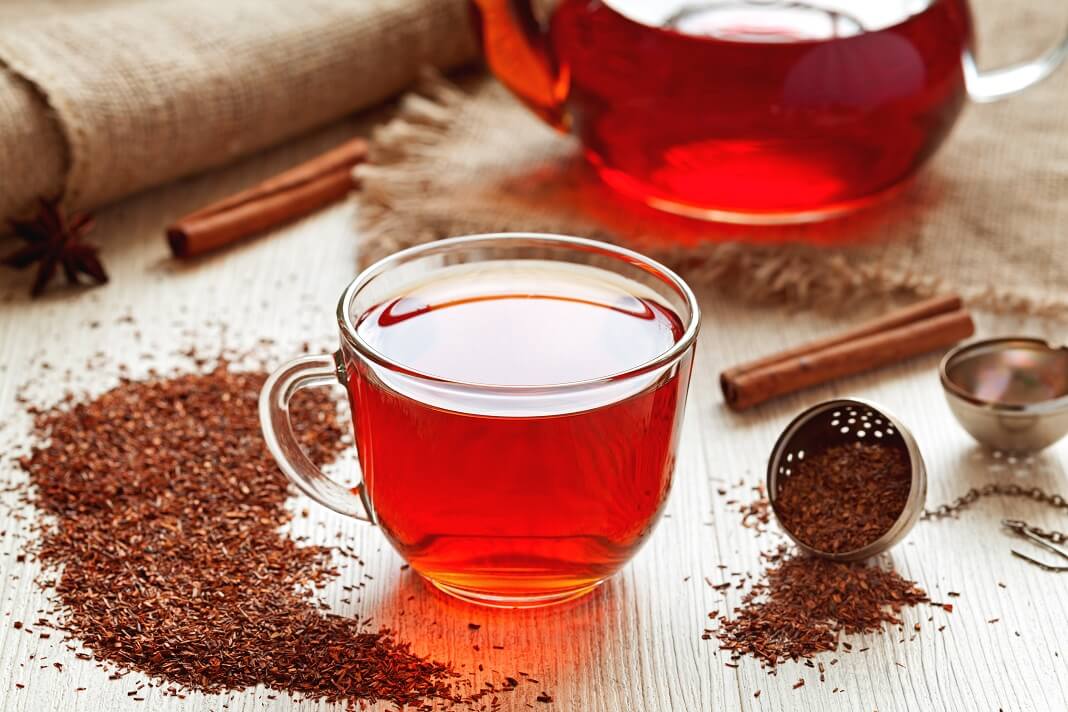
Rooibos or Red Bush Tea of South Africa is free of caffeine, rich in antioxidants, and consists of the bioflavonoid compound quercetin and rutin. This bioflavonoid prevents the generation of histamine, which is the chemical that the body produces in reaction to allergens. Rooibos tea is beneficial for skin allergies as well.
2. Peppermint
The decongestant, anti-inflammatory, and antibacterial properties of peppermint make it indispensable for the cure of allergies.
3. Stinging Nettle
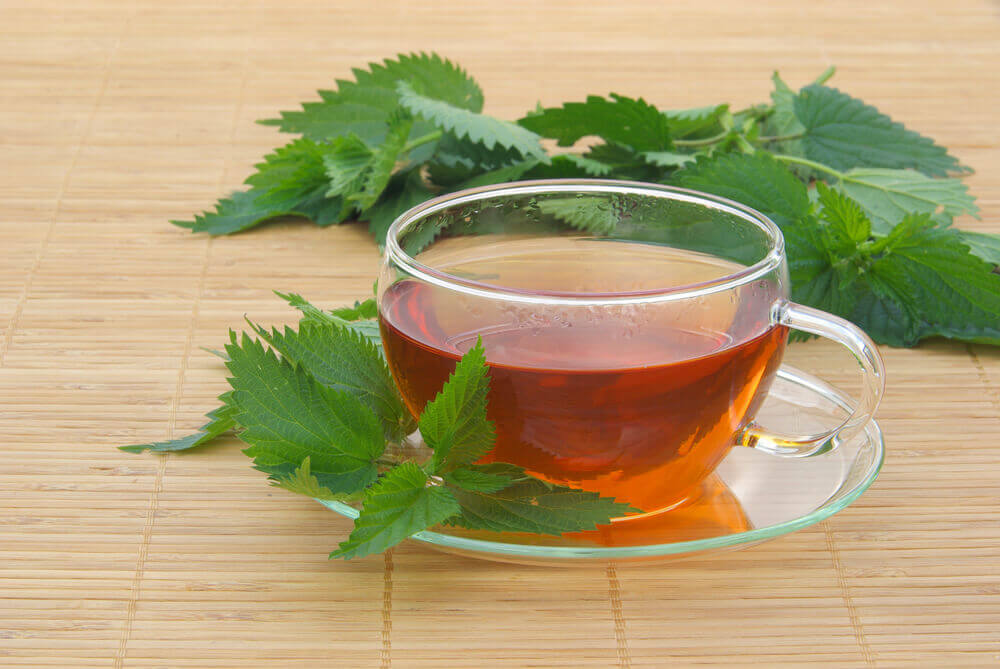
You can either drink nettle tea or chomp on raw nettle herb after removing the stingers. You can also take the most recommended herbs for allergies that is stinging nettle in the form of capsules.
4. Yerba Mate
Yerba mate is one of the most popular herbs for allergies, especially in South America. It possesses natural caffeine and is anti-inflammatory in nature due to the presence of corticosteroids.
The administration of yerba mate helps in cleaning out the respiratory passage for the free flow of air.
5. Dry Ginger
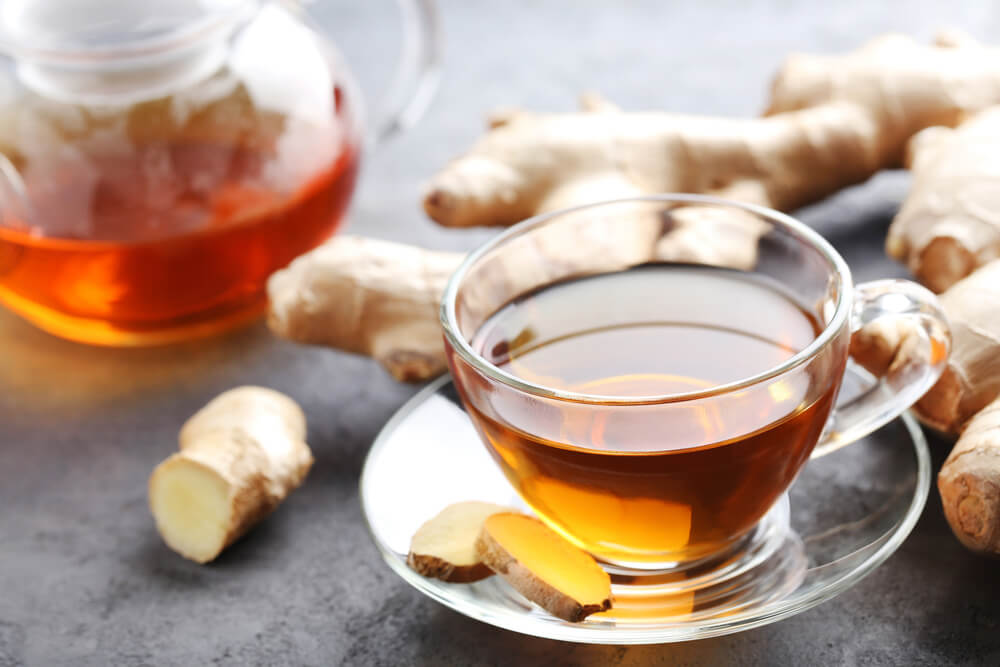
Dry bits of ginger make for an excellent addition to the herbal tea for allergies. Its anti-histamine and anti-inflammatory properties work wonders for the alleviation of the symptoms of allergies.
6. Lemon Balm
Lemon balm is a mint herb with a faint lemony scent. The administration of lemon balm helps to calm the allergic reaction. It can also aid in the treatment of common cold, headaches, and other respiratory problems.
7. Lemon and Honey
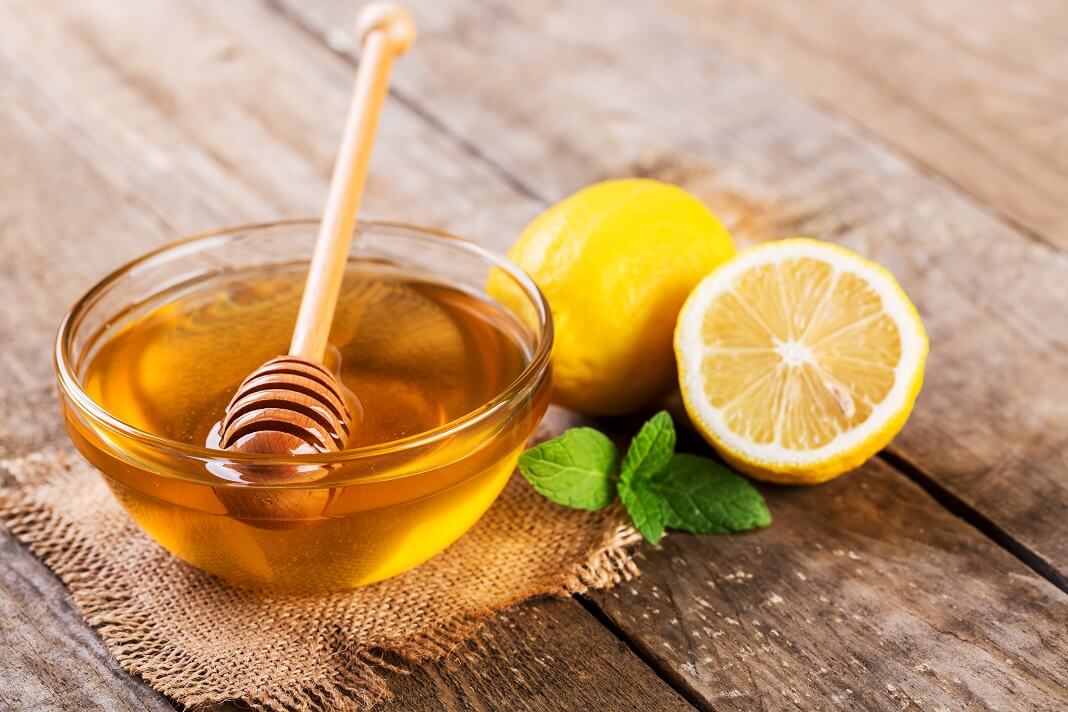
This might come as a surprise, but honey is no good against allergens but is excellent for soothing the dry and coughing throat.
8. Recipe for Herbal tea
Blend each of rooibos, peppermint tea, yerba mate, nettle tea, and lemon balm for the herbal tea mixture. Store the mixture in an airtight container. Use a heaped tablespoon of the mixture to brew a cup of herbal tea and drink it twice or thrice daily for the natural cure of the different symptoms of allergies.
Precautions
The administration of herbs for allergies is good for the , but you need to keep the following precautions in mind to stay safe and secure.
Do not administer herbal remedies for the treatment of acute allergic responses, or anaphylaxis whose symptoms are shortness of breath, chest pain, skin rash, dizziness, and more. Anaphylaxis is a life-threatening condition, and so you are advised to seek immediate medical treatment.
Conduct a patch test to make sure that your scalp and skin is not allergic or sensitive to the herbal extract. Discuss with your physician before the administration of home remedies in the form of the herb for allergies.
No matter how hard one tries, it is impossible to prevent the onset of allergies. What with the rising degrees of pollution, adulteration of food, use of excessive use of chemicals in everything, there is almost no protection against allergies. And to top, it all is flower pollen and of course, there are mites and insect bites to add to the mix of all that can trigger a runny nose, itchy throat, coughing fits, and other allergic symptoms.
Choosing herbs for allergic relief is an excellent choice. The soothing nature of herbs for allergies along with the potent anti-allergic and anti-inflammatory compounds can provide relief from the most severe signs of seasonal allergies.
Also Read: How to Get Rid of Allergies Naturally
FAQs
1. What Herbs Are Good for Allergies?
There are several herbs that can be used by a patient whilst suffering from allergies. You could use any of the above-listed herbs such as horehound, wasabi, mullein, and gingko biloba. Go ahead and use them for treating your allergies effectively.
2. What Herbs Are Natural Histamines?
Antihistamines are compounds that help the body fight the prevailing condition when one person is suffering from allergies they have histamines in their body which floods the system and thereby causing inflammation and redness. Using herbs such as stinging nettle, mullein can help you fight histamines and help in the reduction of inflammation.

